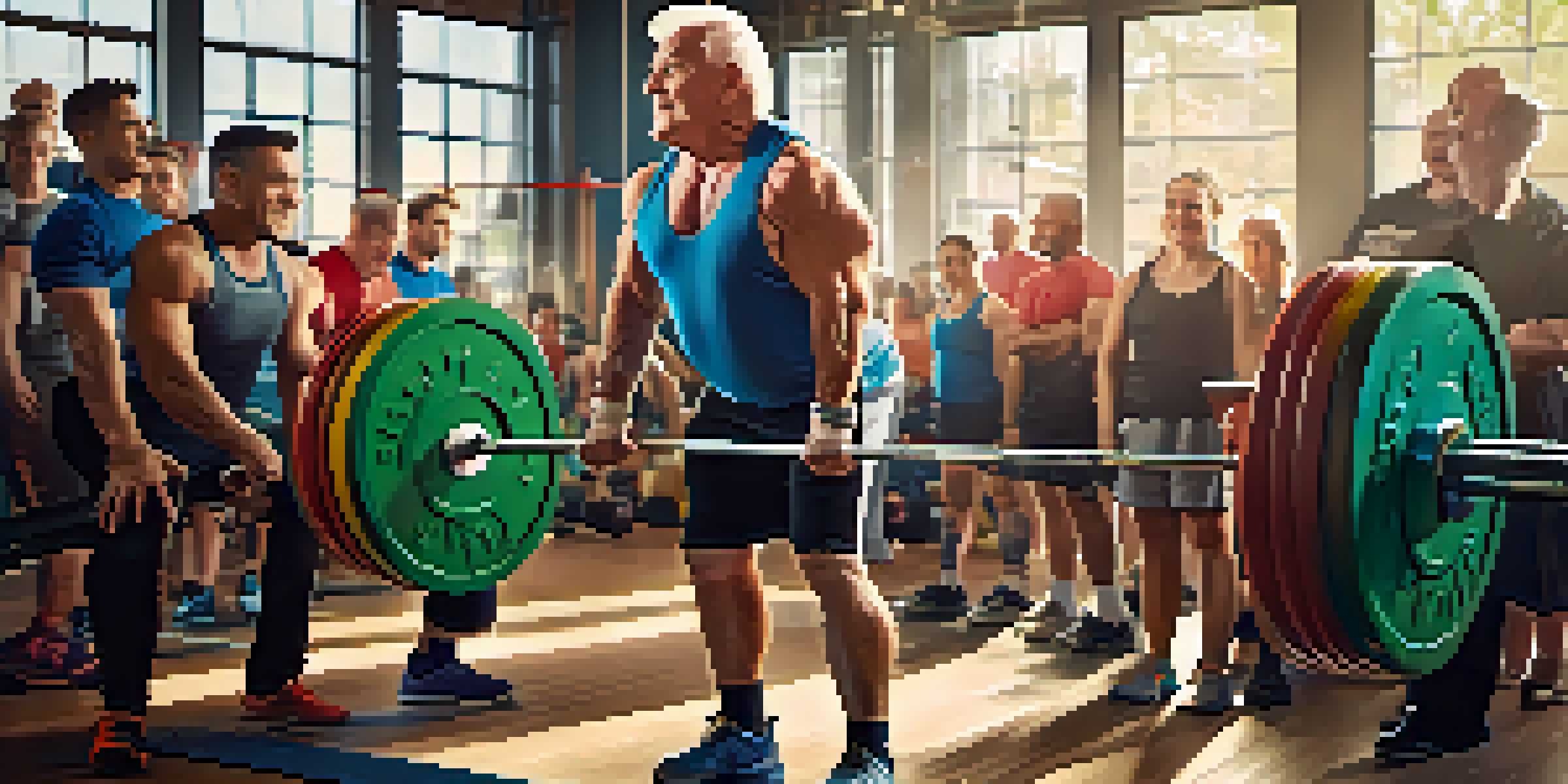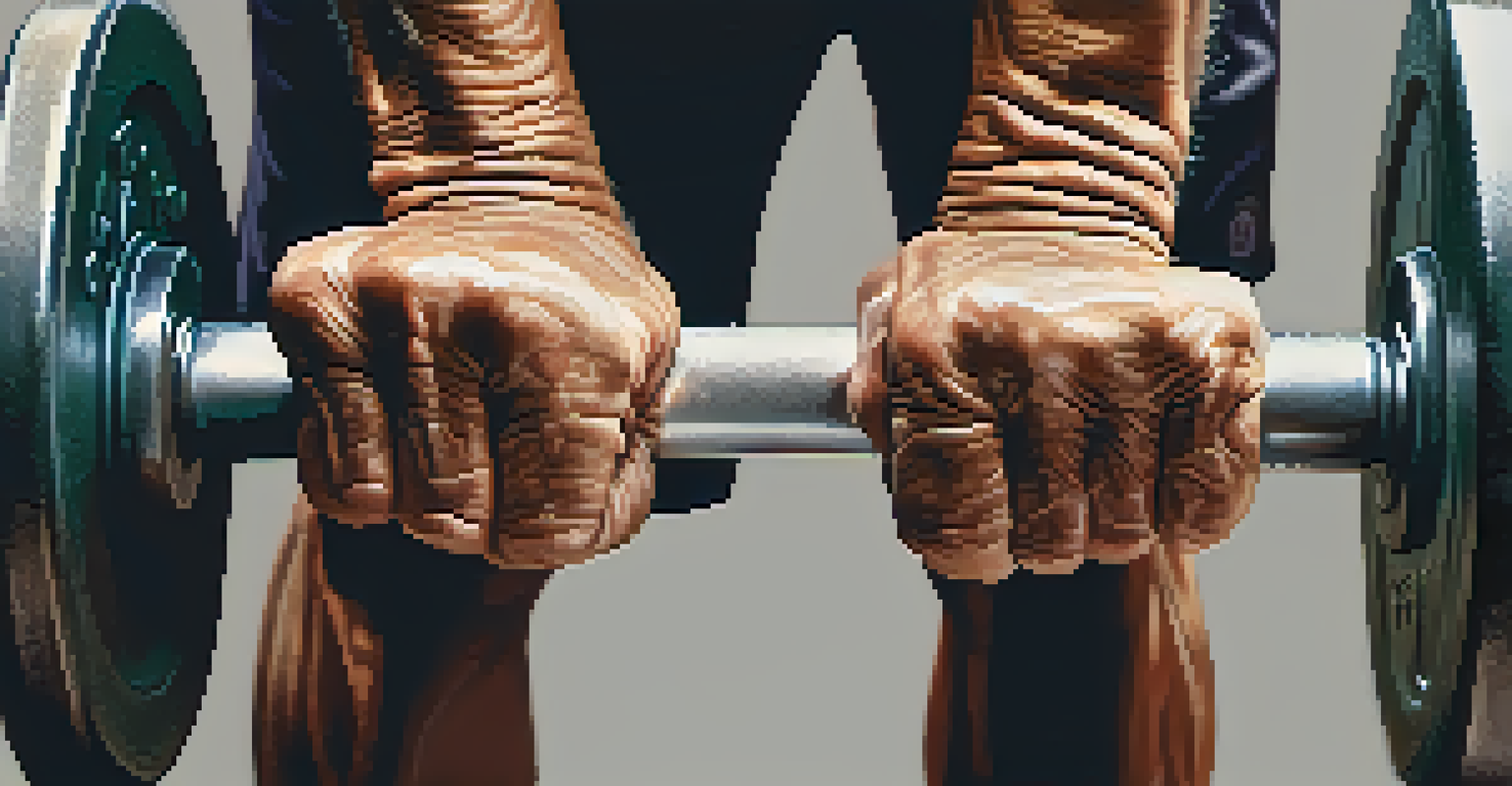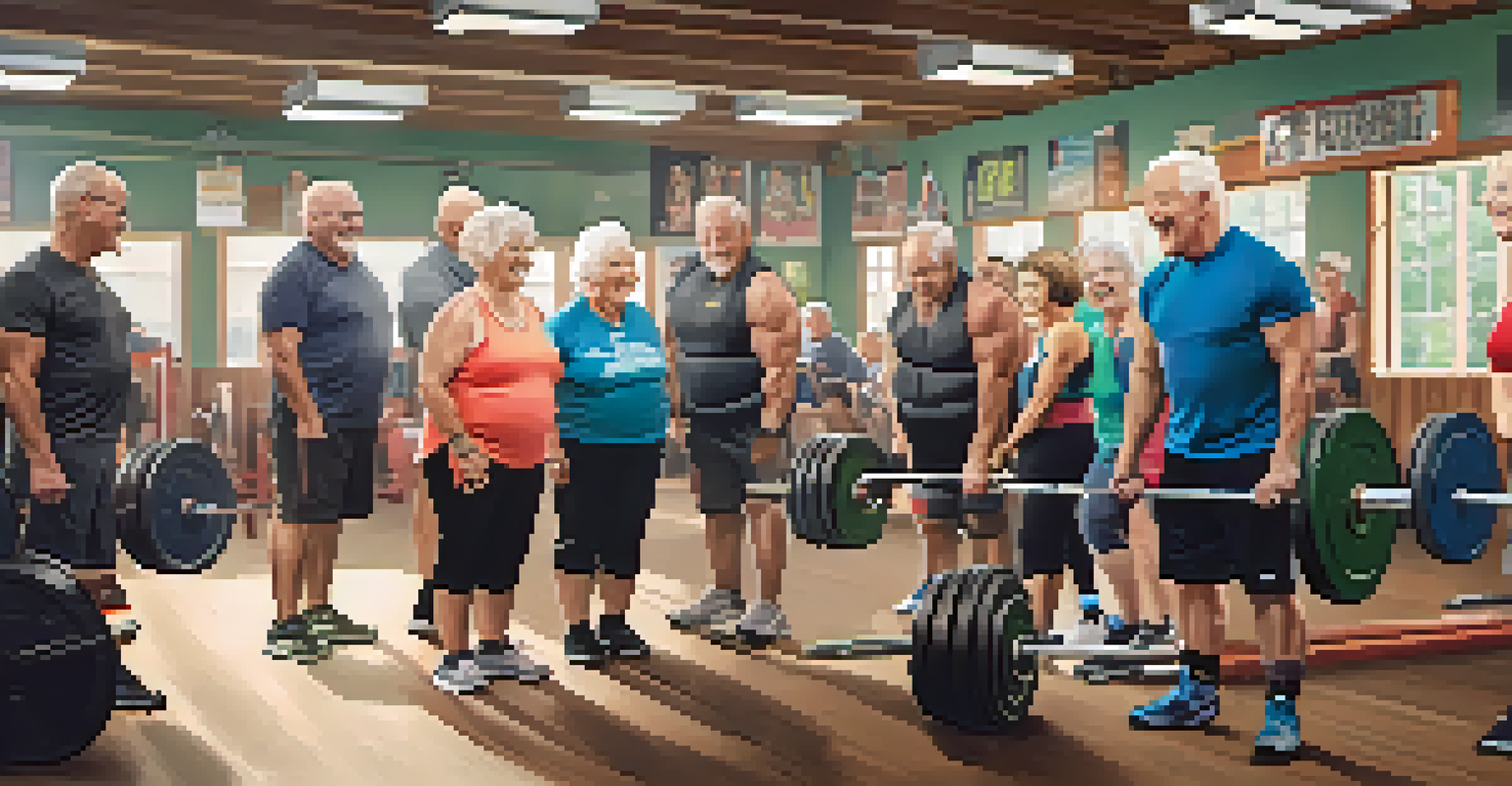Mental Fortitude: Powerlifting's Impact on Aging Minds

Understanding Mental Fortitude in Aging Adults
Mental fortitude refers to the psychological strength that helps individuals push through challenges and setbacks. As we age, maintaining mental resilience becomes increasingly important to navigate the complexities of life. It's not just about facing physical challenges; mental toughness can significantly influence emotional well-being and cognitive function.
Strength does not come from physical capacity. It comes from an indomitable will.
For older adults, mental fortitude can mean the difference between thriving and merely surviving. This strength allows them to tackle everyday issues with a positive mindset and encourages lifelong learning and adaptability. By fostering this resilience, we can enhance the quality of life for aging individuals.
Incorporating activities that build mental fortitude, like powerlifting, can provide older adults with the tools they need to face both physical and mental challenges. It's about developing a mindset that embraces growth, despite the inevitable changes that come with aging.
The Physical Benefits of Powerlifting for Older Adults
Powerlifting, which focuses on three main lifts—squat, bench press, and deadlift—offers a range of physical benefits, especially for older adults. It strengthens muscles and bones, reducing the risk of falls and injuries, which are common concerns as we age. Moreover, increasing muscle mass can enhance metabolism and overall health.

Engaging in powerlifting not only improves physical strength but also boosts confidence. This newfound strength can empower older adults, encouraging them to participate more actively in daily life and social activities. Feeling physically capable can lead to a more positive outlook on life.
Powerlifting Enhances Mental Resilience
Engaging in powerlifting helps older adults build mental fortitude, enabling them to face life's challenges with a positive and adaptable mindset.
In addition to muscle benefits, powerlifting promotes better balance and coordination, which are essential for maintaining independence. As older adults experience these physical improvements, their mental resilience often grows, creating a positive feedback loop that enhances both mind and body.
How Powerlifting Boosts Mental Health
Powerlifting is not just about lifting weights; it plays a significant role in improving mental health. The endorphins released during exercise can alleviate symptoms of anxiety and depression, making it an excellent outlet for stress relief. For older adults, this can be particularly beneficial as they navigate the emotional challenges that often accompany aging.
The greatest glory in living lies not in never falling, but in rising every time we fall.
Moreover, the discipline required in powerlifting can translate into other areas of life. Setting and achieving lifting goals fosters a sense of accomplishment that boosts self-esteem and motivation. This sense of achievement can encourage older adults to pursue new interests or hobbies, expanding their social circles and enhancing their quality of life.
The communal aspect of powerlifting, often practiced in gyms or clubs, also contributes to improved mental well-being. Building relationships and sharing experiences with fellow lifters can combat feelings of isolation, creating a supportive network that fosters mental resilience.
Cognitive Benefits of Powerlifting for Aging Minds
Engaging in physical activities like powerlifting has been linked to cognitive improvements in older adults. Research suggests that resistance training can enhance memory, focus, and overall brain function, which are crucial as we age. The mental engagement required during lifting—like planning workouts and focusing on form—can stimulate brain health.
In addition, learning new techniques and strategies in powerlifting keeps the brain active and engaged. This cognitive challenge is essential for maintaining mental acuity, similar to how puzzles can keep the mind sharp. By regularly challenging their brains, older adults can help stave off cognitive decline.
Physical Strength Promotes Confidence
The physical benefits of powerlifting, such as increased muscle strength and improved balance, empower older adults to participate more actively in their daily lives.
Furthermore, the act of tracking progress in powerlifting encourages critical thinking and goal-setting. This continuous mental engagement not only nurtures cognitive skills but also reinforces the idea that mental fortitude is a lifelong journey, essential for adapting to the changes that come with aging.
Building a Supportive Community in Powerlifting
One of the most rewarding aspects of powerlifting is the community it fosters. For older adults, being part of a supportive network can significantly enhance their mental resilience. This camaraderie offers a sense of belonging and encourages individuals to push their limits together.
Supportive communities can also provide accountability, which is crucial for sticking to a powerlifting regimen. When older adults feel that others are cheering them on, they are more likely to stay committed to their fitness goals. The shared experiences and encouragement create an uplifting environment that nurtures both physical and mental health.
Additionally, these communities often share resources, tips, and experiences that can empower older adults. Whether it's discussing nutrition, recovery, or mental strategies, having access to shared knowledge can significantly enhance their powerlifting journey and overall well-being.
Addressing Common Myths About Aging and Powerlifting
There are many myths surrounding aging and physical activity, particularly powerlifting. One common misconception is that older adults should avoid lifting heavy weights to prevent injury. However, with proper guidance and technique, powerlifting can be safe and beneficial for individuals of all ages, including seniors.
Another myth is that strength training is only for the young or those looking to compete. In reality, powerlifting can be adapted to suit various fitness levels and goals. Older adults can benefit from tailored programs that focus on building strength at their own pace, making it accessible and effective.
Community Support Boosts Well-Being
Being part of a supportive powerlifting community fosters connections that enhance mental health and motivation among older adults.
By addressing these myths, we can encourage more older adults to embrace powerlifting as a means of improving both physical and mental health. Education and awareness are vital in breaking down barriers and promoting a more active lifestyle for aging populations.
Tips for Getting Started with Powerlifting as an Older Adult
If you're an older adult interested in powerlifting, starting with a proper foundation is essential. Consider seeking guidance from a qualified trainer who has experience working with seniors. They can help you learn the correct techniques and develop a personalized program that aligns with your fitness level and goals.
It's also important to listen to your body and progress at your own pace. Start with lighter weights and focus on mastering the form before gradually increasing the load. This approach not only promotes safety but also builds confidence as you see your strength improve.

Lastly, remember to celebrate your achievements, no matter how small. Whether it's lifting a new weight or simply feeling more energetic, acknowledging your progress can boost motivation and reinforce the mental fortitude that comes with powerlifting.